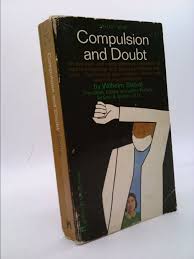The Power of Hypnotherapy for Managing Anxiety
Anxiety is a common mental health issue that affects millions of people worldwide. While there are various treatments available, one lesser-known yet effective approach is hypnotherapy. Hypnotherapy involves guided relaxation, intense concentration, and focused attention to achieve a heightened state of awareness known as trance.
During hypnotherapy sessions for anxiety, a trained therapist uses relaxation techniques to help individuals enter a state of deep relaxation where they are more open to suggestions. This altered state of consciousness allows the therapist to work with the individual’s subconscious mind to address and alleviate anxiety symptoms.
One of the key benefits of hypnotherapy for anxiety is its ability to access and reframe negative thought patterns and beliefs that contribute to anxious feelings. By identifying and changing these underlying beliefs at a subconscious level, individuals can experience long-lasting relief from anxiety symptoms.
In addition to addressing negative thought patterns, hypnotherapy can also help individuals develop coping mechanisms and relaxation techniques that they can use in their daily lives to manage anxiety more effectively. These tools empower individuals to take control of their anxiety and reduce its impact on their overall well-being.
Research has shown that hypnotherapy can be a valuable tool in the treatment of various anxiety disorders, including generalized anxiety disorder, social anxiety disorder, phobias, and post-traumatic stress disorder. Many individuals who have undergone hypnotherapy for anxiety report significant improvements in their symptoms and overall quality of life.
It is important to note that hypnotherapy should be conducted by a qualified and experienced therapist who specializes in treating anxiety disorders. By working with a skilled professional, individuals can safely explore the benefits of hypnotherapy and develop personalized strategies for managing their anxiety effectively.
If you are struggling with anxiety and seeking alternative treatment options, consider exploring the potential benefits of hypnotherapy. With its ability to address underlying issues at a subconscious level and empower individuals with practical tools for managing anxiety, hypnotherapy offers a unique approach to improving mental health and well-being.
7 Common Questions About Hypnotherapy for Anxiety: Effectiveness, Techniques, and Success Rates
- What are 3 coping strategies for anxiety?
- How long does it take for hypnosis to work for anxiety?
- How long does hypnotherapy take to work for anxiety?
- Does hypnotherapy actually work for anxiety?
- What is the 3 3 3 rule for anxiety?
- What is the success rate of hypnosis for anxiety?
- Can hypnosis help with anxiety?
What are 3 coping strategies for anxiety?
When considering hypnotherapy for anxiety, it is essential to complement the treatment with effective coping strategies to manage anxious feelings on a day-to-day basis. Three valuable coping strategies for anxiety include deep breathing exercises, mindfulness meditation, and progressive muscle relaxation. Deep breathing techniques help calm the mind and body by focusing on slow, controlled breaths. Mindfulness meditation encourages individuals to stay present and observe their thoughts without judgment, promoting a sense of inner peace. Progressive muscle relaxation involves tensing and then releasing different muscle groups to reduce physical tension associated with anxiety. By incorporating these coping strategies alongside hypnotherapy sessions, individuals can enhance their ability to cope with and alleviate anxiety symptoms effectively.
How long does it take for hypnosis to work for anxiety?
The time it takes for hypnotherapy to work for anxiety can vary depending on the individual and the severity of their symptoms. Some people may experience relief after just a few sessions, while others may require more time to see significant improvements. It’s important to remember that hypnotherapy is a process that involves working with the subconscious mind to address underlying issues contributing to anxiety. Consistency and commitment to the therapy sessions are key factors in achieving positive outcomes. Ultimately, the effectiveness of hypnosis for anxiety will depend on the individual’s responsiveness to the treatment and their willingness to actively participate in the process.
How long does hypnotherapy take to work for anxiety?
The effectiveness of hypnotherapy for anxiety and the time it takes to see results can vary depending on individual factors such as the severity of the anxiety, the individual’s responsiveness to hypnotherapy, and the specific techniques used during sessions. Some individuals may experience relief from anxiety symptoms after just a few sessions, while others may require more time to notice significant improvements. Consistency and commitment to the hypnotherapy process are key factors in achieving positive outcomes for anxiety management. It is important to work closely with a qualified hypnotherapist who can tailor the treatment plan to meet individual needs and monitor progress along the way.
Does hypnotherapy actually work for anxiety?
Hypnotherapy has been shown to be an effective treatment for anxiety in many cases. Research and clinical studies have demonstrated that hypnotherapy can help individuals manage and alleviate symptoms of anxiety by addressing underlying issues at a subconscious level. By accessing the subconscious mind and working to reframe negative thought patterns and beliefs, hypnotherapy can empower individuals to develop coping mechanisms and relaxation techniques that support their mental well-being. While results may vary from person to person, many individuals have reported significant improvements in their anxiety symptoms after undergoing hypnotherapy sessions with a qualified therapist. It is important to work with a skilled professional who specializes in treating anxiety disorders to ensure the best possible outcomes.
What is the 3 3 3 rule for anxiety?
The 3 3 3 rule for anxiety is a simple and effective technique that can help individuals manage anxious thoughts and feelings. The rule involves identifying and acknowledging three things you see, three things you hear, and then moving three parts of your body. By engaging your senses and focusing on the present moment through this structured exercise, you can break the cycle of anxious thoughts and bring yourself back to a calmer state of mind. This technique is particularly useful in moments of heightened anxiety or panic, providing a quick and practical way to ground yourself and regain control over your emotions.
What is the success rate of hypnosis for anxiety?
The success rate of hypnotherapy for anxiety can vary depending on individual factors such as the severity of the anxiety, the individual’s receptiveness to hypnosis, and the skill of the therapist. While specific success rates may not be universally defined, many individuals have reported significant improvements in their anxiety symptoms after undergoing hypnotherapy. Research and anecdotal evidence suggest that hypnotherapy can be an effective tool for managing anxiety by addressing underlying beliefs and thought patterns at a subconscious level. It is important to work with a qualified hypnotherapist who specializes in treating anxiety to maximize the potential benefits of hypnosis for anxiety management.
Can hypnosis help with anxiety?
Hypnotherapy has been shown to be a valuable tool in managing anxiety. Through guided relaxation and focused attention, hypnosis can help individuals enter a state of deep relaxation where they are more receptive to positive suggestions and therapeutic interventions. By working with the subconscious mind, hypnotherapy can address underlying beliefs and thought patterns that contribute to anxiety, offering individuals a unique opportunity to reframe their perspective and develop coping strategies. Research supports the effectiveness of hypnotherapy in treating various anxiety disorders, making it a promising option for those seeking relief from anxiety symptoms.



